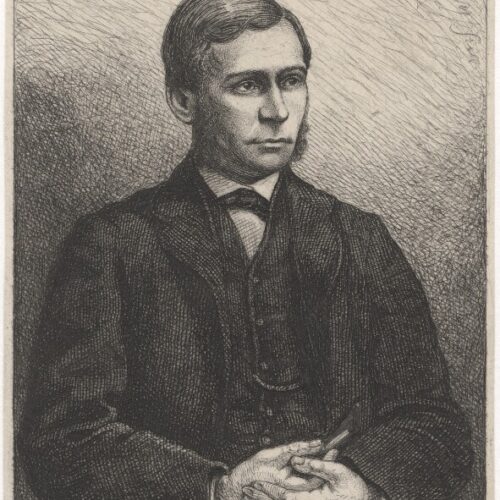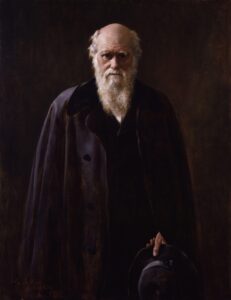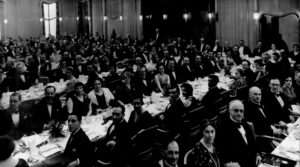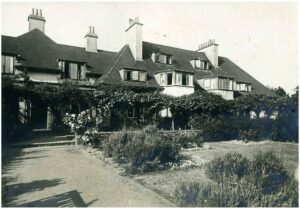

Thomas Hill Green was a philosopher, educator, and a Liberal, whose idealist philosophy (with its practical implications) was a significant influence on some of the earliest members of the Ethical movement in the United Kingdom. As a thinker and as a man, he embodied many of the concerns central to humanists then and today, including the duties of living together in society, and the best ways for institutions to meet the needs of their communities. Green’s religious beliefs remain the subject of much debate, with some believing that his disregard for the concepts of miracle and revelation amounted to a philosophy which acted as ‘a surrogate religion for an age of declining faith’. In any case, his influence on some of organised humanism’s most prominent early figures cannot be denied.
Thomas Hill Green was born in Birkin, Yorkshire, the son of a clergyman. Educated first by his father at home, at the age of fourteen he went to Rugby School (newly reformed by Thomas Arnold), and then to Balliol College, Oxford, around which the rest of his life was largely focused. Green obtained his BA in 1859, followed by his MA. He was made a lecturer in ancient and modern history at Balliol in 1860, a fellow the same year, and a tutor in 1866. In 1878, Green was appointed professor of moral philosophy.
In Oxford Green was active not only in the intellectual life of the university, but also in the liberal politics of the city. As a member of the Oxford Reform League he advocated for the extension of voting rights, and became a Liberal member of Oxford’s town council, as well as an elected member of the School Board. His work in the realms of education was prefaced on a belief that it should be diverse, and accessible to all regardless of wealth or poverty. This was evident too in his efforts in the management of Balliol College under Benjamin Jowett, where his ideas about increasing access to education for working men and the financially disadvantaged were embodied in the creation of Balliol Hall to provide for those students. Green’s efforts towards inclusion also led him to campaign for the admission of women to the University.
Green’s philosophy focused on the capacity of human beings to apply reason, rationality, and will to their actions and moral life. Green’s concept of personal freedom was not one of being able to do anything desired, but instead the capacity to use reason to align one’s actions with an understanding of the ‘good’. He also believed that the role of the state was to assist the individual in the best realisation of this kind of positive freedom: enabling provisions in education, healthcare, and employment. As such, his own liberal philosophy expressed the values underpinning the welfare state, sixty years before its realisation. The influence of these concepts of active, applied philosophy can be clearly traced in the development of the ethical societies in Britain (Humanists UK today).
In his Autobiography, philosopher R. G. Collingwood wrote that at Oxford Green had fostered ‘a stream of ex-pupils who carried with them the conviction that philosophy… was an important thing, and their vocation was to put it into practice’. Among these were Bernard Bosanquet and J. H. Muirhead, initiators of the UK’s first ethical society in 1886. In describing the intentions of the London Ethical Society, Green’s ideas were clearly echoed in the words of Muirhead:
What was wanted was a change of heart and mind by directing men to the root principles of action and the conditions of permanent welfare in individuals and communities.
Muirhead, and the Ethical movement he promoted, sought to unite people in active efforts towards social reform, inspired by those – with Green central among them – who had applied their own philosophy to bringing about change.
Having suffered the impacts of heart disease for a number of years, Thomas Hill Green died on 26 March 1882 at home in Oxford, aged just 45.
[I]f there is one important intellectual bequest from Green, it is a strong communitarian and ethical theory of citizenship and the state, devoted to the promotion of a worthwhile life for all its citizens.
Andrew Vincent
Green’s beliefs and efforts in extending education, and the vote, to those previously excluded embodied the lived philosophy he advocated. In a similar way, the early actors in the Ethical movement – including Muirhead, Bosanquet, and Henry Sidgwick – sought to shed a rarified and speculative philosophy, in favour of a humanist ethical system applied to life. They saw their responsibility as being to act on their moral and ethical beliefs: to live well themselves and to bring about a more humane society for everyone, free from any belief in supernatural punishment or reward. These are the central values of humanists today, and the applied philosophy which underpins them can be traced – at least in part – to T. H. Green.
Thomas Hill Green and Charlotte Byron Green in the Oxford Dictionary of National Biography
The service of the state: Four lectures on the political teaching of T. H. Green by John Henry Muirhead

I cannot pretend to throw the least light on such abstruse problems. The mystery of the beginning of all things […]

The Rationalist Press Association (later known as simply the Rationalist Association) had its origins in the London print works of […]

Prior’s Field School was founded in 1902 by Julia Arnold Huxley. Born in 1862, Julia grew up in an intellectual […]

Essentially, I am interested in this world, in this life, not in some other world or a future life. Whether […]